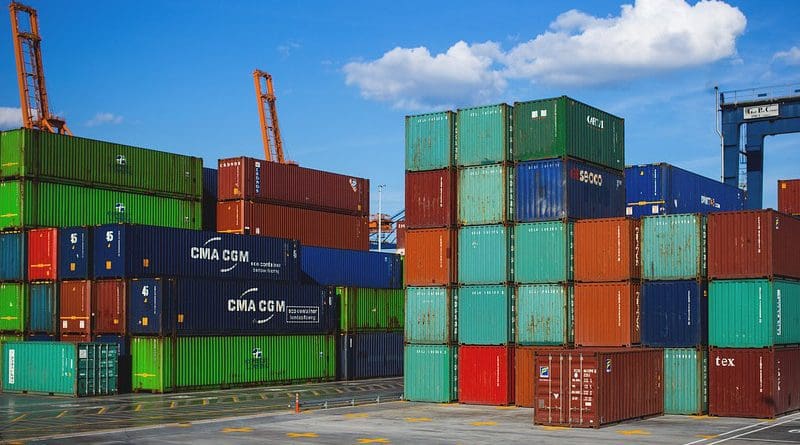Asia In Critical Position To Kick-Start Global Trade Reform – Analysis
By Jake Read*
At the G7 summit in June in Cornwall, participants recognised the need to defend and modernise the multilateral rules-based trade system and agreed to get behind urgent, wholescale trade reform. They acknowledged that the rulebook has long been out of date and that the world trade system is in need of repair.
Highlighting issues with the World Trade Organization’s (WTO) dispute settlement mechanism, the United States began an informal block on replacing retiring Appellate Body judges in 2016. That block continues to this day. Transparency in the WTO is also lacking as countries skip WTO reporting obligations and overuse Special and Differential Treatment provisions. The WTO has also been targeted for its inability to deal with market-distorting subsidies, state ownership and interventions in many economies. These system failures and others have eroded trust in the WTO.
Yet the global trade system has been overlooked as a potential instrument to deal with global challenges like COVID-19, climate change and the digital economy. Trade restrictions on medical and vaccine supplies cost lives. Other restrictions on environmental goods including wind turbines and solar panels are making emissions reductions more costly. Inconsistent national regulations on cross-border digital operations are obstructing competition, productivity and innovation in the fastest growing area of the global economy.
Problems and gaps in the trade rules such as these need to be filled through system strengthening and rules-building. The task is to build a WTO reform strategy and negotiate a way towards restoring confidence in the system. Preserving the WTO’s key established functions and defending its ability to enforce multilateral rules is one aspect of the approach to reform. The other is modernising the WTO’s framework of rules to secure its relevance.
The G7 alone cannot provide the momentum needed for such a broad undertaking, nor does it presume that it can. The recent G7 communique placed that responsibility on the G20, which will be hosted by Indonesia in 2022. Indonesia’s interests and those of other Asian countries will be crucial to any major reform strategy.
Indonesia has signalled willingness to lead in the G20, pushing the need for high-level approaches to trade system reform at the Osaka summit. As the world climbs out of the COVID-19-induced economic crisis, countries in the Asia Pacific understand that open, rules-based trade must be a major driver of international security and global recovery.
The Regional Comprehensive Economic Partnership (RCEP) agreement, initiated and carried forward by ASEAN members, including Indonesia, was a regional signal of commitment to inclusive economic cooperation. Its conclusion in the middle of a pandemic was recognition that economic hardship is prolonged without trade cooperation. RCEP was also an important exercise in plurilateralism — agreements not constrained by a need for full WTO consensus and that remain open to new entrants.
The Biden administration is standing firm on the longstanding squabbles that the United States has with the trade regime, particularly regarding China. Yet it promised renewed engagement with multilateralism and flagged interest in comprehensive trade reform at the G7. The Biden administration’s commitment to work with others on system reform will be needed to motivate reform more widely.
Countries in the Asia Pacific have both the ambition and incentive to drive a revitalisation of the global trade system. The 15 countries in the RCEP group, including five G20 members, collectively account for over 30 per cent of both global GDP and global trade. The region became a global centre of economic gravity because of its international integration under the multilateral trade order and policies of economic liberalisation. The region has also been the source of many creative solutions to international trade issues.
Negotiations are now underway among Asia Pacific countries to remove trade restrictions on vaccines and related medical goods. Regional tariff reductions on 54 lines of environmental goods were instituted through APEC in 2016. The region has also seen a number of path-breaking agreements that establish international digital economy rules between countries such as Singapore, Australia and New Zealand.
Tapping into this energy, a G20 trade system reform taskforce could help set strategic directions on structural and institutional issues. The taskforce would need to develop a reform strategy to be endorsed by the G20 membership in tandem with the wider WTO membership. Establishing and driving a G20 taskforce would signal high-level commitment to dealing with issues such as the hamstrung dispute resolution process and the decline in systemic transparency. This taskforce could also help set ambitions on global challenges including in medical supply chains, environmental goods trade and cross-border e-commerce.
A G20 taskforce could define a reform agenda, provide information and mobilise shared commitment. Structural issues could be probed as countries work towards a better understanding of expectations and standards. Differences between countries that present obstacles could be dealt with in turn. The G20 pursued a similar course when crafting an international strategy around post-2008 financial reforms.
As G20 host in 2022, Indonesia is well placed to lead a trade reform taskforce as a major economy that has deep interest in the trade reform agenda, a leading role in the developing world, and a balanced position between geopolitical frontlines. An initiative of this kind should attract strong support from Indonesia’s East Asian G20 partners and other G20 members.
Countries and coalitions from the Asia Pacific region will need to step forward and present practical solutions such as these to drive comprehensive trade system reform forward.
*About the author: Jake Read is a research assistant at the Asian Bureau of Economic Research, Crawford School of Public Policy, The Australian National University.
Source: This article was published by East Asia Forum and drawn from the author’s recent report Asia and the strategy for global multilateral trade available here at the East Asian Bureau of Economic Research.

